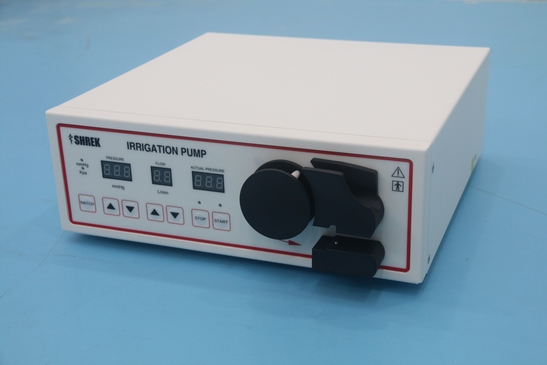Medical Equipment Irrigation Pump: A Critical Component of Minimally Invasive Surgery
Minimally invasive surgery (MIS) is a surgical technique that involves performing procedures through small incisions, using specialized instruments and imaging technology. MIS has revolutionized surgical practice, allowing for faster recovery, less pain, and fewer complications for patients. One of the critical components of MIS is the irrigation pump, which provides a steady flow of fluid to maintain visibility and facilitate the removal of debris during surgery.

An irrigation pump is a medical device that delivers a controlled flow of fluid to the surgical site during MIS procedures. The fluid, usually saline solution or a similar sterile solution, serves several purposes. It helps to wash away debris, provides a clear view of the surgical field, and maintains the temperature of the surgical site. The irrigation pump is usually connected to the surgical instruments using specialized tubing or catheters.
There are several types of irrigation pumps available on the market, including peristaltic pumps, venturi pumps, and pressure pumps. Each of these pumps works in a slightly different way but ultimately serves the same purpose of providing a steady flow of fluid to the surgical site.
Peristaltic pumps are the most common type of irrigation pump used in MIS. They work by squeezing a flexible tube to create a vacuum, which pulls fluid into the tube. As the tube relaxes, the fluid is forced out of the tube and into the surgical site. Peristaltic pumps are known for their accuracy and reliability, and they are easy to use.
Venturi pumps work by using the Venturi effect to create a vacuum that pulls fluid into the pump. They are less commonly used than peristaltic pumps, but they are useful for delivering high flow rates of fluid.
Pressure pumps work by using a pressurized fluid source to deliver fluid to the surgical site. They are not as commonly used as peristaltic pumps or venturi pumps, but they are useful for delivering fluid to multiple surgical sites simultaneously.
The selection of the appropriate irrigation pump for a particular procedure depends on several factors, including the surgeon's preference, the type of surgery being performed, and the patient's condition. Factors such as the volume and flow rate of the fluid, the temperature of the fluid, and the ability to regulate the pressure and flow rate are essential considerations when selecting an irrigation pump.
In conclusion, the irrigation pump is a critical component of MIS, allowing for clear visibility and efficient removal of debris during surgery. There are several types of irrigation pumps available, each with its unique features and advantages. Surgeons must carefully consider the type of surgery being performed and the patient's condition when selecting the appropriate irrigation pump. Ultimately, the use of an irrigation pump helps to ensure the success of MIS procedures and the safety and well-being of patients.



Leave a message